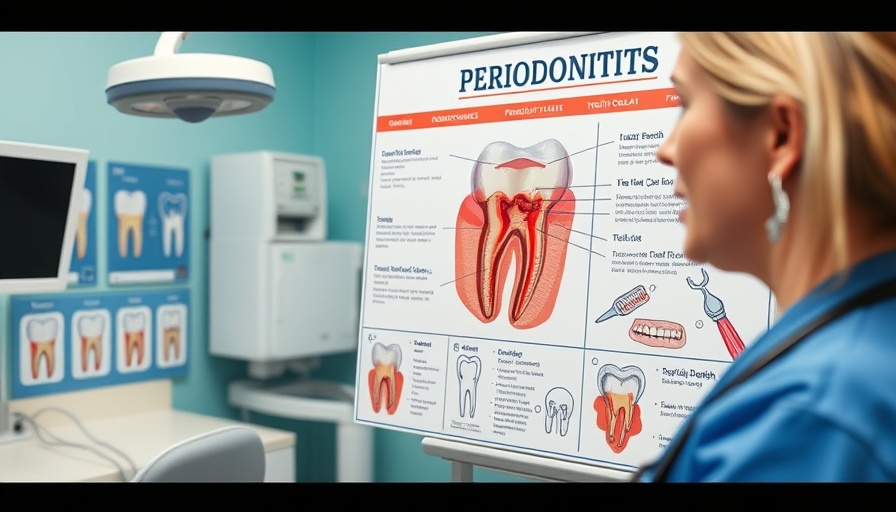
Understanding Dental Cleanings: What You Need to Know
When it comes to our oral health, the terms "scaling" and "cleaning" often create confusion. Many people wonder, "Do teeth need scalings at the dentist?" Understanding the types of dental cleanings available and knowing the signs that indicate you may need one can empower you to make informed decisions about your dental care.
In 'do teeth need scalings at the dentist? #shorts', the conversation revolves around the necessity of dental scalings, highlighting key insights that we are excited to expand upon in this article.
What is Scaling?
Scaling is a process performed by dental professionals to remove plaque and tartar, also known as calculus, from the teeth. While many use the terms scaling and cleaning interchangeably, it’s essential to note that there are significant differences between a standard cleaning and scaling. Every six months, those with healthy gums typically undergo a regular cleaning known as prophylaxis, which targets plaque above the gum line. On the other hand, scaling and root planing (SRP) is a more intensive procedure aimed at those with gum disease.
When is Scaling Necessary?
Identifying whether you need scaling usually begins with a gum health assessment during your dental visit. The dentist measures the depth of the pockets between your gums and teeth. Healthy gums typically have a depth of 1 to 3 millimeters. If pockets are 5 millimeters or deeper, or if tartar is found below the gum line along with signs of bone loss, a deep cleaning becomes necessary. It’s important to understand that scaling isn’t better than regular cleaning; it's merely suited for different dental health needs.
Knowledge is Power: Recognizing Gum Disease
Gum disease can sneak up on anyone. Symptoms may include swollen gums, bleeding during brushing, or persistent bad breath. Understanding these warning signs is crucial. Regular checkups, dental x-rays, and professional cleanings play significant roles in maintaining healthy gums. If you've noticed these symptoms, don’t hesitate to consult your dental provider for a thorough evaluation.
Myths About Dental Cleanings
Despite the wealth of information available, several misconceptions about dental cleanings persist. One common myth is that all types of cleanings are painful or unnecessary. In fact, many patients report feeling rejuvenated after a cleaning, enjoying the fresh feeling of clean teeth. Another misconception is that regular cleanings can replace deep scaling; however, this is not the case, as different techniques address varying levels of gum health.
Best Practices for Oral Hygiene
Achieving and maintaining healthy gums goes beyond just visits to your dentist. Establishing a solid dental hygiene routine that includes regular brushing, flossing, and using mouthwash facilitates optimal oral health. Techniques like proper brushing and effective flossing can help prevent plaque buildup, reducing your risk of needing more invasive procedures like scaling. Consider integrating these practices into your daily routine.
Dental Anxiety and Building Healthy Habits
For many, visiting the dentist can be a source of anxiety. However, arming yourself with knowledge can significantly alleviate these concerns. Understanding what to expect during your visit, the importance of each procedure, and how they contribute to your overall oral health can help shift this perspective. Remember, regular dental visits are essential, not only for maintaining aesthetics, like teeth whitening and braces, but also for preventing serious gum disease.
Conclusion: Staying Ahead of Gum Disease
Having an informed understanding of dental cleanings and the importance of assessing your gum health plays a vital role in maintaining a healthy smile. The discussion on whether "do teeth need scalings at the dentist" transcends mere terminology; it is about taking proactive measures towards your dental health.
To take charge of your dental health, schedule regular checkups, practice thorough oral hygiene, and always consult your dentist about any concerns. Small actions today can lead to significant health benefits down the line.
 Add Row
Add Row  Add
Add 




Write A Comment